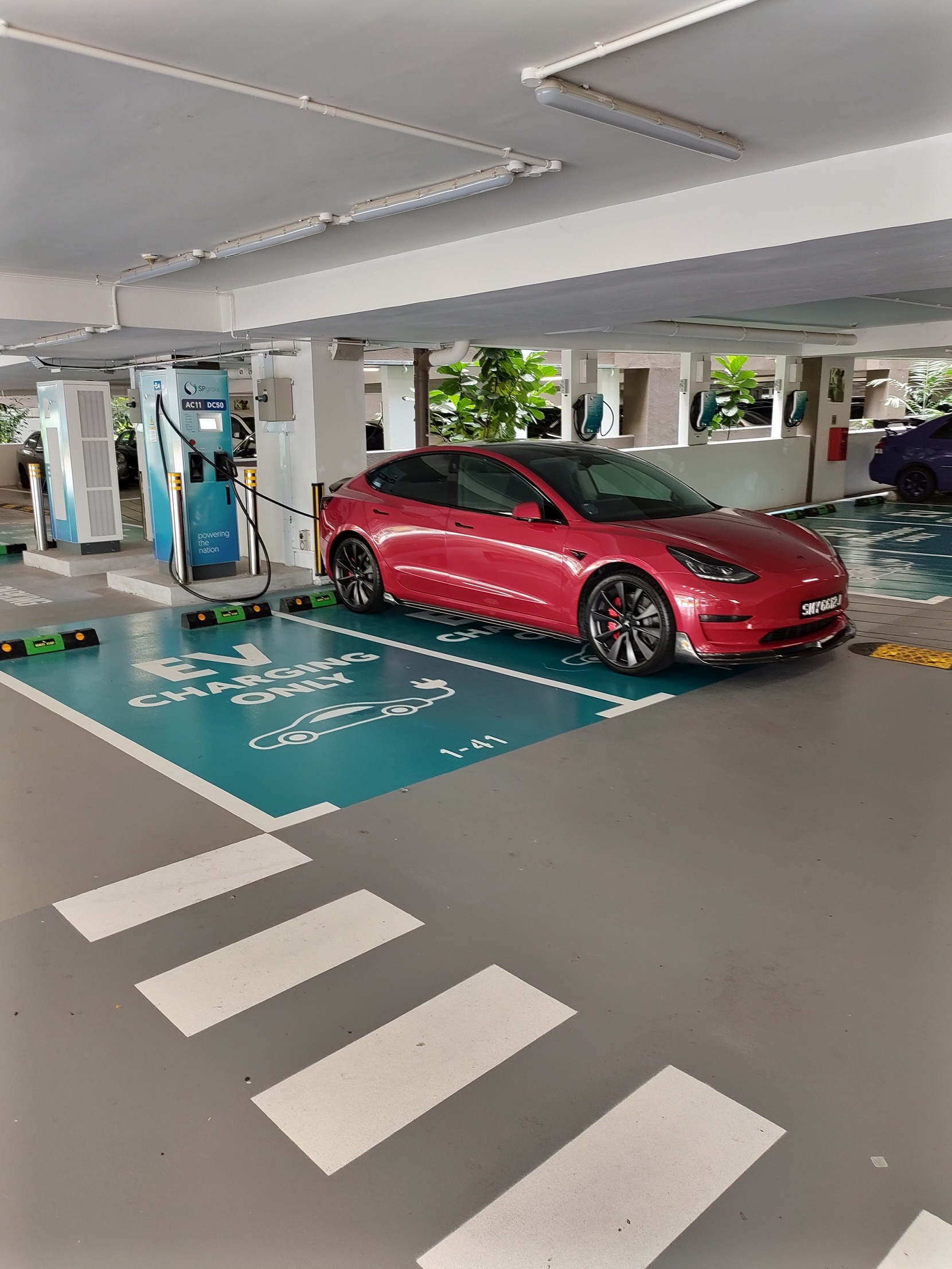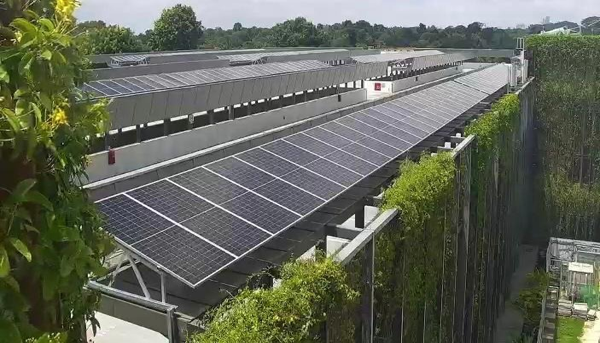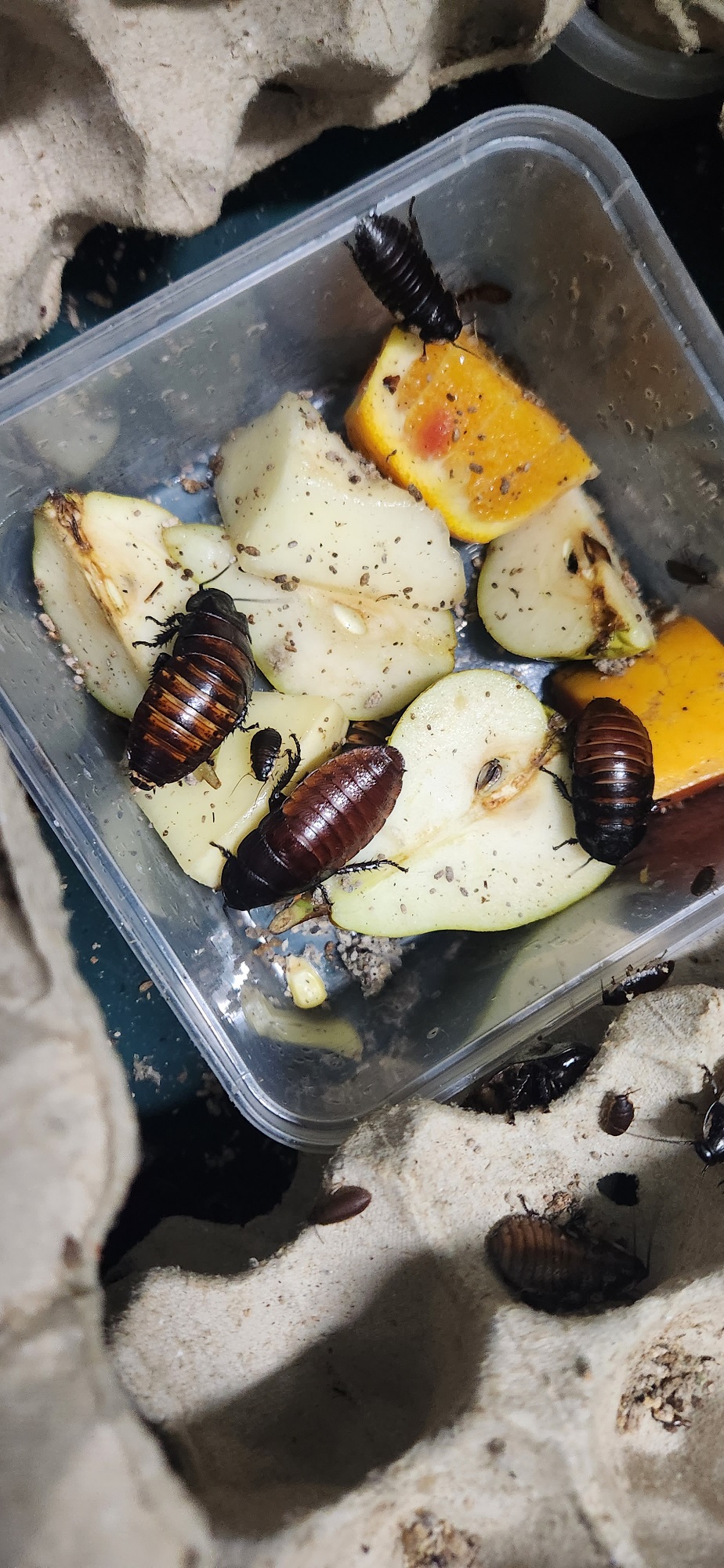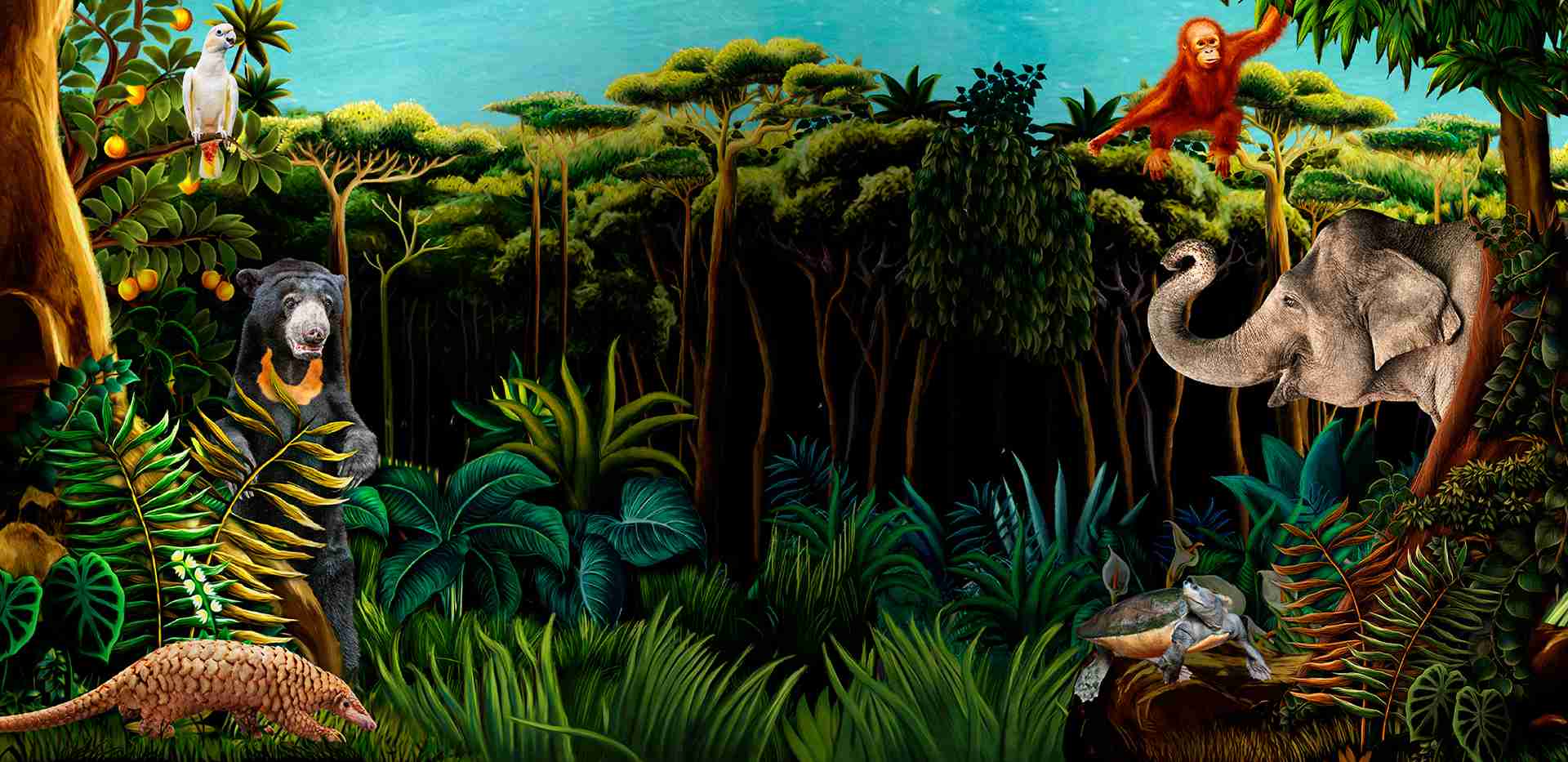Mandai Wildlife Group strengthens its environmental sustainability strategy by committing to science-based targets
Through near-term reduction targets under the SBTi, Mandai Wildlife Group aims to reduce its organisation-wide greenhouse gas emissions at a pace and scale required by climate science. Committing to the reduction targets to achieve net zero is the first step in a process that may take up to 24 months. As next steps, the Group will work with SBTi to detail and validate the science-based targets for its existing operations at Singapore Zoo, Night Safari and River Wonders by 2024 to ensure that carbon reduction initiatives carried out over the next decade are at a rate consistent with keeping global warming to 1.5°C above pre-industrial levels. There are also plans for the Group to set targets for the new features currently being developed in Mandai Wildlife Reserve after determining the new parks’ baseline data for carbon emissions from a full year of operations. In the meantime, the Group continues to work towards becoming a carbon neutral precinct by 2024.
Under a carbon accounting framework, the Group is already actively tracking and reviewing its carbon inventory and footprint, in its efforts to steward Mandai Wildlife Reserve into a carbon-neutral precinct by 2024.
Mike Barclay, Group CEO of Mandai Wildlife Group, said, “As a conservation-minded organisation, it is fundamental to our mission that we are intentional about reducing our impact on the environment and doing our bit to secure a future that is sustainable. Collectively, we must learn to make do with only those resources that our planet can replenish and restore for future generations. Committing to the SBTi framework will help us to identify the deep emission reduction cuts that we need to achieve to be aligned with climate science, as we journey towards becoming a net-zero organisation. We will boost this ambition by joining hands with like-minded partners in our supply chain, and harnessing technological innovations that can help us to achieve our planet goals.”
Sustainable Operations: Driving efficient use of resources to minimise carbon footprint and championing a sustainable value chain for green living
As the steward of Singapore’s wildlife parks, operating sustainably is a key focus and spans responsible procurement, resource stewardship, and sustainable design. Under resource stewardship, there are roadmaps for energy, water, waste and transport. The Group has pledged to attain 100 per cent of its energy from renewable sources by 2030, and reduce the intensity of potable water use in its existing wildlife parks by 25 per cent. To date, it has achieved a 24 per cent drop in water consumption from 2016 to 2021 in the existing wildlife parks at Mandai Wildlife Reserve, through infrastructure upgrades and park-wide water metering that monitors usage and detects leakages. Additional initiatives include:
● Two water recycling facilities using membrane technology will be established to treat wastewater into high-quality recycled water suitable for non-potable uses in the new wildlife parks. When fully operational from 2023, these facilities are expected to support 21 per cent of Mandai Wildlife Reserve’s water needs in the long-term.
● The new parks are designed to accommodate rainwater harvesting tanks, which are projected to meet about 5 per cent of the precinct’s water needs.
Achieving zero-waste may be further afield, but in the interim, Mandai Wildlife Group has a near-term target to achieve a 60 per cent waste diversion rate from incineration by 2030. Based on the principles of reducing, reusing, recycling and responsible disposal of waste, the waste strategy incorporates measures to encourage sustainable production, consumption, as well as waste and resource management.
Single-use plastic carrier bags and bottled drinks were removed from its operations to reduce waste, resulting in an 80 percent reduction in single-use plastics across its parks as of 2021. It is in the process of eliminating all single-use fossil-based plastics from guest operations. Mandai Wildlife Group is also doubling efforts to find other means of treating various waste streams for a new lease of life including:
● Studying the use of Black Soldier Flies, Madagascan Hissing Cockroaches and Malaysian Blue Worms to compost raw food waste from its F&B kitchens and animal food waste generated at the wildlife parks. The invertebrates are in turn used as animal feed, creating a closed-loop waste management system.
● Reusing animal leftover browse and horticultural waste as mulch and animal bedding while finding ways to upcycle other waste streams and recyclables.
To reduce its carbon footprint further, the wheels are in motion for a sustainable transport system, with a target of converting 100 percent of the Group’s internal fleet to electric vehicles or vehicles with low carbon fuel by 2030. All trams, buggies, and 40 percent of vans used in the parks have been electrified. The Group is further decarbonising the rest of its internal fleet while working with transport providers to electrify the shuttle buses.
Sustainable procurement is a strategic focus for the Group and a Green Procurement Policy was introduced in 2019 to ensure materials are obtained responsibly. Sustainability criteria were established for more than 20 product categories - from wood and paper products to food-related categories such as palm oil, seafood, and tea. This also helps to encourage sustainable consumerism through our parks’ F&B and Retail Outlets:
● Use of 100 per cent Certified Sustainable Palm Oil (CSPO) and sustainably sourced paper-based Products by 2025. Processes are in place to document the use of palm oil and its derivatives across the wildlife parks, and support the Group’s transition to CSPO-certified palm oil. This is a step up from switching to CSPO-certified sustainable cooking oil in its F&B offerings in 2017. Responsible procurement of other deforestation-linked crops is yet another commitment. By 2025, all Mandai-produced paper-based products will be Forest Stewardship Council (FSC) certified or made from recycled paper.
● 100 per cent sustainable seafood and tea at its F&B offerings. Seafood procured by the Group comes from certified sustainable fishery and aquaculture farms. This ensures that all seafood purchased by the Group are sustainably farmed or caught to protect the oceans against unsustainable fishing practices. In support of Singapore Green Plan’s 30 by 30 target, the Group also purchases seafood that is certified by Singapore Food Agency’s (SFA) Good Aquaculture Produce Fish Farming standard. All the tea served at the wildlife parks is Rainforest Alliance Certified, verifying that the tea is grown and harvested using practices considerate of the environment, safety, and livelihoods of the farmers.
● Removal of beef from all F&B outlets owned by the Group. In September 2022, Mandai Wildlife Group removed beef items from its F&B menus to lower its carbon footprint. At least 20 per cent of its menu will also feature plant-based options. These efforts are intended to raise awareness of the climate impact of food consumption.
Biodiversity Protection and Sustainability Advocacy: Setting an example for sustainable development and behavioural change
The biodiversity protection pillar focuses on enhancing local habitats and ecological connectivity at Mandai Wildlife Reserve in the long term. These include setting aside areas for buffers, setback and high-value habitats as well as launching a wildlife bridge linking the two forest patches separated by Mandai Lake Road. Another key initiative is the restoration of degraded areas in the precinct. Over 0.3 hectares have been restored, and a total of 2.7 hectares is expected to be restored by 2030.
Reiterating the importance of sustainability as a core value within the Group’s operations, new developments and existing parks will be certified by sustainability initiatives and frameworks such as the Singapore Building and Construction Authority (BCA) Green Mark Certification Scheme, the Landscape Excellence Assessment Framework (LEAF) introduced by the National Parks Board (NParks), and international bodies such as the U.S. Green Building Council SITES as part of the Sustainable SITES Initiative.
Singapore Zoo, Night Safari and River Wonders were awarded the LEAF Platinum certification in 2021, a testament to the Group’s dedication to good landscape design and park management. A key initiative is the development of a mobile app that allows for better tracking of horticulture waste generated, recycled, and reused across the three parks. In 2022, three of its buildings under the new development – East Arrival Node, Penguin Building at Bird Paradise, and the resort – were also awarded the BCA Green Mark Platinum Award. The resort is the first hotel in Singapore to be accredited with BCA Green Mark Award (Platinum) Super Low Energy in view of the exemplary design efforts toward energy savings.
The Mandai Environmental Sustainability Strategy is also embedded in Employee engagement which includes sustainability-themed workshops, ground-up initiatives and refresher courses on innovations and best practices with sustainability-themed talks and tours also made available for guests. This helps extend the advocacy on green living across internal and business stakeholders, as well as visitors and the public.
*The Science Based Targets Initiative (SBTi) drives ambitious climate action in the private sector by enabling organisations to set science-based emissions reduction targets. The SBTi is a partnership between CDP, the United Nations Global Compact, World Resource Institute (WRI) and the World Wide Fund for Nature (WWF).

10 electric vehicle charging lots were installed in the multi-storey carpark at Mandai Wildlife Reserve in November 2020 as part of its efforts to promote sustainable transport modes.
Photo credit: Mandai Wildlife Group

The Group will implement on-site solar panels in phases at all available and permissible rooftops across its new and existing parks. The latest installation of solar panels was completed in March this year at the multi-storey carpark.
Photo credit: Mandai Wildlife Group

Madagascar Hissing Cockroaches being used to compost raw food waste from its F&B kitchens and animal food waste generated at the wildlife parks.
Photo credit: Mandai Wildlife Group
Annex A: Overview of Mandai Wildlife Group’s Sustainability Commitments
Commitments |
Switch 100% of our electricity consumption to renewable sources by 2030 |
Reduce potable water use intensity for Singapore Zoo, Night Safari and River Wonders by 25% from 2020 baseline by 2030 |
Convert 100% of our internal fleet to either electric vehicles or vehicles with lower carbon emission fuel by 2030 |
Achieve a waste diversion rate from incineration of 60% by 2030 |
100% of palm oil and its derivatives used in all end-products will be from certified sustainable sources* by 2025 *Physically sourced RSPO certified or offset with Independent Small Holder RSPO credits |
100% of Mandai-produced paper-based products will be FSC-certified or 100% recycled by 2025 |
Eliminate all single-use fossil-based plastics from guest operations by 2023 |
Restore 2.7 hectares of degraded land in the Buffers, Set-backs and Retained Forest by 2030 |

